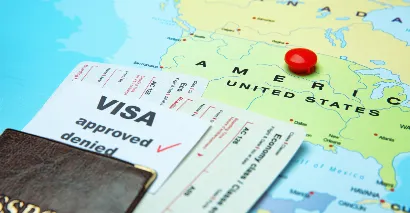Key Highlights
Thailand is also in the process of changing its Non-Immigrant visa structure and making it simpler, streamlining the system, and cutting down on the types of visa. Beginning August 31, 2025, the Thai Ministry of Foreign Affairs will reorganize the 17 previously existing visa types and instead form 7 larger groups. The idea would be to streamline the application process and make it less confusing, without changing the rules to be used in eligibility and rights to the applicants.
What’s Changing: The Restructuring
The number of visa types of non-immigrants will be narrowed to only 7 in Thailand.
-
The various business visas that overlap like B, B-A, IM, IB and EX will be combined under one Business category.
-
Education-related visas, such as ED, ED-A, R, R-A and RS will now all be considered under Education.
-
Others and categories related to labour also mean the consolidation, in that these categories are braced under fewer but broader headings.
-
The adjustments made are only administrative in nature- rights, responsibilities, and eligibility do not change.
Also Read: Thailand Extends Visa Stays for Tourists and Students: New Rules to Boost Tourism and Education
The New 7 Visa Categories
The new, more organized system of Thailand will now include the following categories:
-
F (Official) -Diplomatic or government mission purposes.
-
B (Business) - This is a combination of all the business-based visas, such as B, B-A, IM, IB, and EX.
-
ED (Education) -Combines the visas of students, researchers, and academics.
-
M (Mass Media) - Open to media professionals, journalists, and other similar positions.
-
O (Others) -Comprising a range of visas that do not qualify as any of the other categories, like O, O-A, O-X.
-
L-A (Labour) -Foreigners who enter Thailand to do labor.
-
O L-A -A blended between the category of Others and labour-related activities.
Why is Thailand Doing This?
-
Minimize Confusion: In the past, several categories overlapped in purpose, resulting in errors of usage.
-
Enhance Productivity: Categorization is less, and paperwork is less complex and quicker to resolve.
-
Administrative Transparency: A less disorganized system will enable the immigration officers to handle applications in a coherent manner.
Also Read: Top 10 Visa Rejected Reasons: Know Latest Changes
What Isn’t Changing
-
Rules of eligibility remain unchanged. The applicants who had been eligible under the previous visa type will be eligible under the new structure.
-
The rights and responsibilities do not disappear. The conditions, duration of stay, and the entitlements of visa holders do not change.
-
Transition date is fixed. The restructuring becomes effective August 31st, 2025. Till this date, applications will be made under the old system.
Implications for Applicants
New visa categories will also make the application process easier to comprehend.
-
Some risks of erroneous application will be reduced.
-
Nobody will lose their rights; the consolidation is not to impose limits but to make things easier.
-
Customers ought to verify what the new category of their purpose of stay would be after the transition date.
Current vs. New System
There are 17 types of visas in Thailand, most of which overlap before August 31, 2025. Indicatively, five types of business visas (B, B-A, IM, IB, EX) tended to confuse the applicants. In the same manner, education visas were divided into ED, ED-A, R, R-,A, and RS.
Since August 31, 2025, there will only be seven categories: Official, Business, Education, Mass Media, Others, Labour, and O L-A. The new system will minimise overlaps, streamline processing, and make the work of applicants and immigration officers very clear.
Also Read: Difference Between Tourist Visa and Visitor Visa
What to Watch Out For?
Thai immigration offices will release updated versions and guidelines.
-
Thai embassies and consulates in foreign countries will revise their instructions for applications.
-
The transition cases may need additional clarification for those who are applying prior to August, yet receiving approvals post the new guidelines.
-
Subsequent changes in policy can be made to further optimize the practice of these higher categories.
Global and Regional Context
The simplification of visa categories is not peculiar to Thailand. Numerous nations revise their immigration systems to remain competitive, receive tourists, international students, and investments. In the case of Thailand, where tourism is a heavy stakeholder and more foreign students and expatriates are coming there, simplifying the visa process is also one of the ways to guarantee economic stability and international connectivity.
Conclusion
The move by Thailand to cut its non-immigrant visa categories from 17 to 7 categories spells a significant move to simplification. The transformations will allow the visa system to be more accommodating to applicants, less confusing, and efficient in terms of its processing speed, without any harm done to the eligibility or rights. With the deadline of August 31, 2025, close, potential travelers, students, and professionals are recommended to keep pace with the official guidelines to facilitate a hassle-free application process.
Contact TerraTern for more information.








